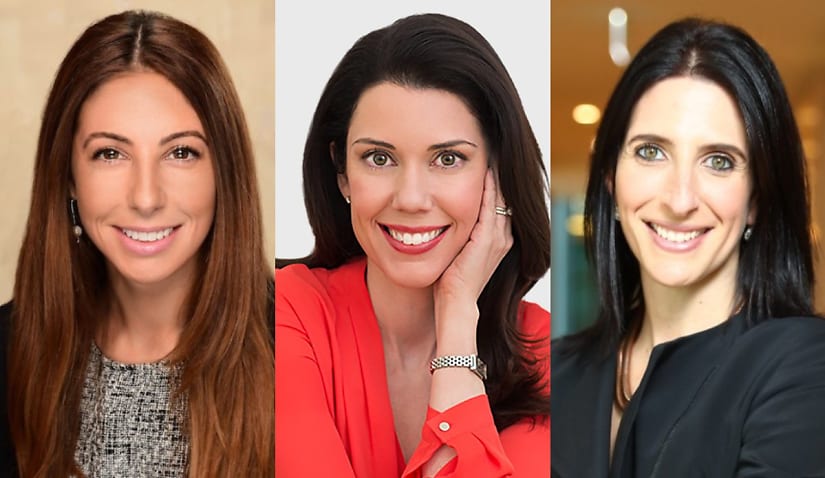As client demand for innovation grows, these award-winning innovators said that whilst knowing the market and responding meaningfully to it is important, so too is being able to get ahead of the game where possible.

Caryn Sandler is a partner and the chief knowledge and innovation officer at Gilbert and Tobin and the winner of the Innovator of the Year category at the recent Australian Law Awards.
Speaking on an episode of the Lawyers Weekly Show, produced in partnership with the Commonwealth Bank of Australia and co-hosted by Daniela Pasini, national director for Professional Services at CommBank, the pair discussed innovation in the legal industry and whether it’s currently client-led, firm-led or both.
According to Ms Sandler, working in a competitive market means that there is a “definite demand” from clients for innovative service delivery.
“[There’s] definitely a very big focus from our clients in this area, but this is definitely more ingrained in the law firms as a way of working as well. So irrespective of the client demand, I think there is a view also internally if you think about many of the junior lawyers coming through, how they think about practice, where they think pain points exist, it is a combination of obviously excellent service delivery because we want to be fantastic for our clients but also about making the experience fantastic for our lawyers as well,” she explained.
“And that means that we have to focus on these areas, and certainly leverage technology where technology is capable of improving service delivery as well as also work on the capability development for our lawyers in these spaces because obviously, in the past, legal experience has been the real focus. Going forward, it absolutely still needs to be front and centre, but we need to obviously have other non-traditional skills around technological literacy, data, project management, and design thinking. And that’s something that we are thinking very carefully about and have been focused on.”
Echoing a similar sentiment, Ms Larkin said that being focused on innovation that is led by both the clients and her firm is a “delicate balancing act”.
“I walked away from a career that I had spent two decades building back in 2016 because I felt very passionately that there had been a massive shift in what clients were looking for. So, my personal experience has been that my drive to [find] an innovative firm was led by what I understood to be client needs and wants. And we built the entire firm out to meet what I understood at that time the changing client needs were,” she said.
“It certainly has been hugely advantageous to us during, obviously, the recent disruptions that we were paperless to begin with, that then we were set up to work remotely.
“So I had seen and had identified that some years ago, now six years ago, that there had been that shift in the marketplace, and I think that that client-led and need and very much has pushed innovation, and the firms have risen to meet that demand, but then equally from a firm perspective, if you are not innovative in the way in which you [do] not just provide the legal services but structure the daily operation of the firm in a market where it’s actually really hard to attract and retain talent, it becomes difficult to compete even in that regard.”
It’s also important, when working towards innovation, to be not only proactive but also reactive, according to Ms Larkin, who said that she always advises clients to be proactive — but occasionally has to be reactive herself when looking at the market.
“Obviously, we built out, our entire firm was designed with a proactive, innovative approach from the outset. But absolutely every year, we have to look at the changing market conditions, [and] we have to look at new legislative developments. And as a result of that, we are constantly assessing, and we have the great benefit of working really closely with a number of in-house legal teams, which does across a range of different industries and so that does give us some wonderful insights into pain points,” she added.
“And so that allows us to be able to craft signature solutions in a way that if we weren’t providing arm’s length advice, we might not have the same insights. So, we remained so very grateful for those relationships and those opportunities, but that does mean that we are constantly reflecting on what the clients need and not just now, but what is the learning legislation and what might we be able to do from a compliance perspective.”
Ms Sandler has been on a similar journey with Gilbert + Tobin and said that over the last eight years, the firm has learnt to balance understanding client needs and taking into consideration market conditions, too.
“Given we’ve had lots of changes in the market off the back of COVID, new ways of working, hybrid working and the like, and we did a really detailed diagnostic across the firm as to what is it that is going to make sure that we retain talent going forward,” she said.
“So absolutely, there’s a lot of client-listening that goes on, there’s a lot of looking to the markets, looking to global markets as well to see what’s happening there, but absolutely, being proactive, I think, is absolutely critical, it’s what our clients always tell us. They want advisers that are proactive in all areas of their business.”

Lauren is the commercial content writer within Momentum Media’s professional services suite, including Lawyers Weekly, Accountants Daily and HR Leader, focusing primarily on commercial and client content, features and ebooks. Prior to joining Lawyers Weekly, she worked as a trade journalist for media and travel industry publications. Born in England, Lauren enjoys trying new bars and restaurants, attending music festivals and travelling.